
Fasil Ghebbi: The Camelot of Africa
Nestled in the heart of Gondar, Ethiopia, Fasil Ghebbi is a sprawling fortress-city that whispers tales of a bygone era. Known as the Camelot of Africa, this UNESCO World Heritage site stands as a testament to the grandeur of the Ethiopian Empire in the 16th and 17th centuries. With its unique blend of architectural styles, including Nubian, Arab, and Baroque influences, Fasil Ghebbi offers a mesmerizing glimpse into Ethiopia's royal past. As you wander through the cobblestone pathways, you'll encounter a series of impressive castles, churches, and palaces, each with its own story to tell. The centerpiece is the Fasilides' Castle, a magnificent structure that has withstood the test of time. Don't miss the chance to explore the Debre Berhan Selassie Church, renowned for its intricate murals and religious significance. The serene Royal Enclosure, surrounded by high stone walls, provides a peaceful escape from the bustling city life. Fasil Ghebbi is not just about history and architecture; it also hosts vibrant cultural events and festivals that bring the neighborhood to life. Timkat, the Ethiopian Orthodox celebration of Epiphany, is a particularly enchanting time to visit, as the streets fill with colorful processions, music, and dance. Whether you're a history buff or a culture enthusiast, Fasil Ghebbi offers an unforgettable journey through time.
Local tips in Fasil Ghebbi
- Visit early in the morning to avoid the crowds and enjoy the serene atmosphere.
- Wear comfortable shoes as the cobblestone paths can be uneven.
- Hire a local guide to gain deeper insights into the historical significance of the site.
- Check the local calendar for festivals like Timkat to experience the neighborhood's rich cultural heritage.
- Bring a camera with a good zoom lens to capture the intricate details of the murals and architecture.
Fasil Ghebbi: The Camelot of Africa
Nestled in the heart of Gondar, Ethiopia, Fasil Ghebbi is a sprawling fortress-city that whispers tales of a bygone era. Known as the Camelot of Africa, this UNESCO World Heritage site stands as a testament to the grandeur of the Ethiopian Empire in the 16th and 17th centuries. With its unique blend of architectural styles, including Nubian, Arab, and Baroque influences, Fasil Ghebbi offers a mesmerizing glimpse into Ethiopia's royal past. As you wander through the cobblestone pathways, you'll encounter a series of impressive castles, churches, and palaces, each with its own story to tell. The centerpiece is the Fasilides' Castle, a magnificent structure that has withstood the test of time. Don't miss the chance to explore the Debre Berhan Selassie Church, renowned for its intricate murals and religious significance. The serene Royal Enclosure, surrounded by high stone walls, provides a peaceful escape from the bustling city life. Fasil Ghebbi is not just about history and architecture; it also hosts vibrant cultural events and festivals that bring the neighborhood to life. Timkat, the Ethiopian Orthodox celebration of Epiphany, is a particularly enchanting time to visit, as the streets fill with colorful processions, music, and dance. Whether you're a history buff or a culture enthusiast, Fasil Ghebbi offers an unforgettable journey through time.
Iconic landmarks you can’t miss
Fasil Ghebbi
Explore Fasil Ghebbi, a UNESCO World Heritage Site in Gondar, Ethiopia, and discover the rich history and stunning architecture of this royal fortress complex.
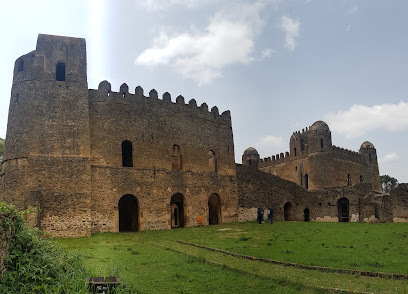
Emperor Fasil’s Palace
Discover the rich royal heritage of Ethiopia at Emperor Fasil’s Palace, a UNESCO World Heritage Site featuring stunning architecture and lush gardens.
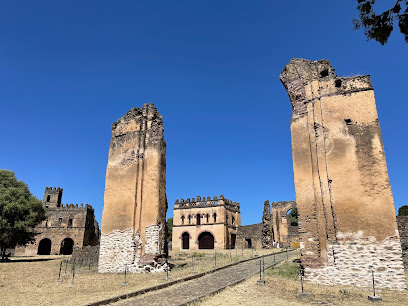
Debre Birhan Selassie Church
Explore the breathtaking Debre Birhan Selassie Church in Gondar, a masterpiece of Ethiopian Orthodox architecture adorned with mesmerizing murals.
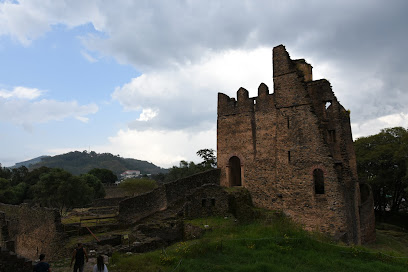
Royal enclosure- Main Entrance
Explore the Royal Enclosure in Gondar, a UNESCO World Heritage site filled with rich history, stunning architecture, and vibrant culture.
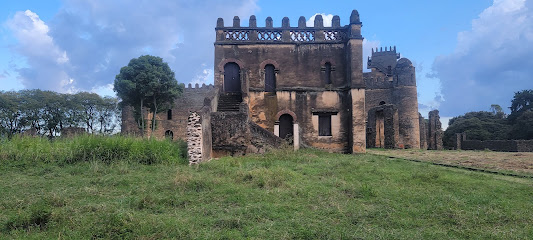
Iyasu's Palace
Discover the grandeur of Iyasu's Palace in Gondar, a historical landmark that showcases Ethiopia's rich royal heritage and stunning architecture.
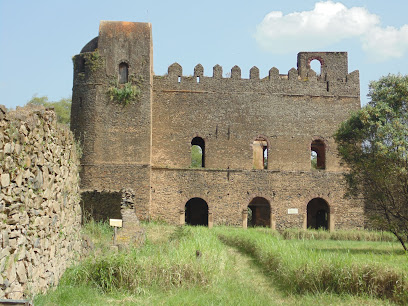
The Fasil Ghebbi (Amharic: ፋሲል ግቢ)
Discover the grandeur of Ethiopia's royal history at Fasil Ghebbi, a UNESCO World Heritage site filled with stunning architecture and rich cultural heritage.

Unmissable attractions to see
Fasil Ghebbi
Discover the majestic Fasil Ghebbi in Gondar, a UNESCO World Heritage site showcasing Ethiopia's rich royal history and stunning medieval architecture.
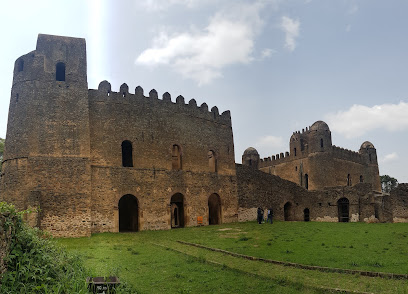
Debre Birhan Selassie Church
Explore the stunning Debre Birhan Selassie Church in Gondar, a masterpiece of Ethiopian Orthodox architecture and vibrant religious art.
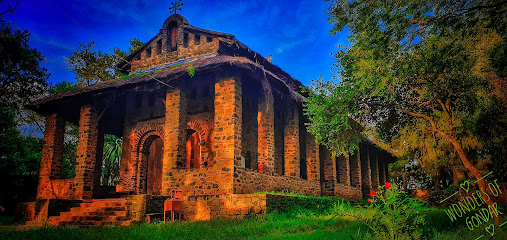
Mentewab's Palace
Explore Mentewab's Palace in Gondar, a historical landmark that beautifully embodies Ethiopia's rich cultural heritage and architectural grandeur.
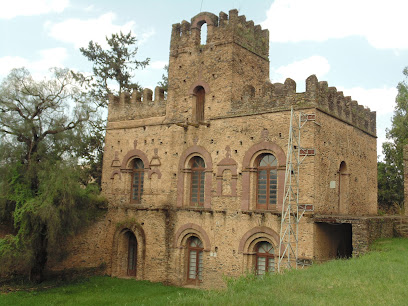
ቅሀ ወንዝ
Explore Gondar, Ethiopia - a city of ancient castles, rich culture, and breathtaking landscapes waiting to be discovered.

Essential places to dine
The Four Sisters Restaurant
Discover authentic Ethiopian flavors at The Four Sisters Restaurant in Gondar - where tradition meets taste.
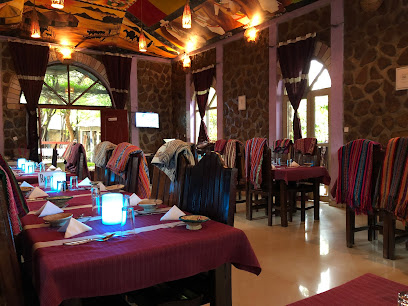
Master Chef Restaurant-bar
Experience authentic Ethiopian cuisine at Master Chef Restaurant-bar in Gondar - where rich flavors meet warm hospitality.
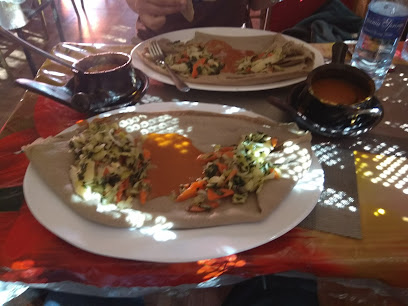
Tele Cafe
Experience authentic Ethiopian flavors at Tele Cafe in Gondar - a cozy restaurant perfect for tourists seeking local delicacies.
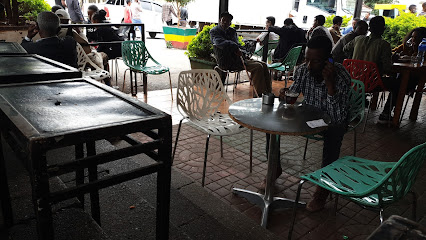
Zoz Amba
Discover the rich flavors of Ethiopian cuisine at Zoz Amba in Gondar—an authentic dining experience awaits you.
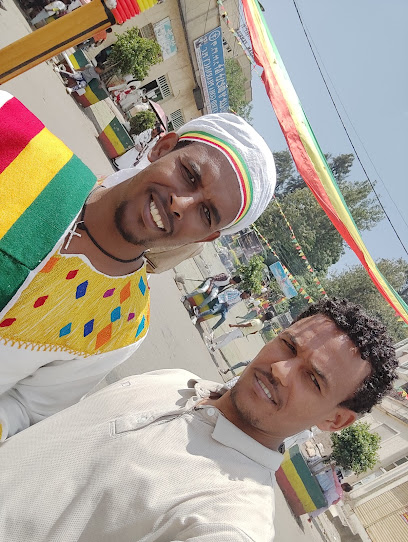
Delbedl
Discover authentic Ethiopian cuisine at Delbedl in Gondar – where every dish tells a story.
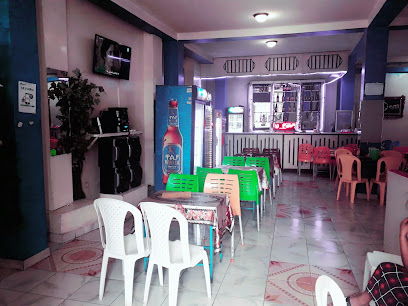
Rain Restaurant
Experience authentic Ethiopian flavors at Rain Restaurant in Gondar – where every meal tells a story.
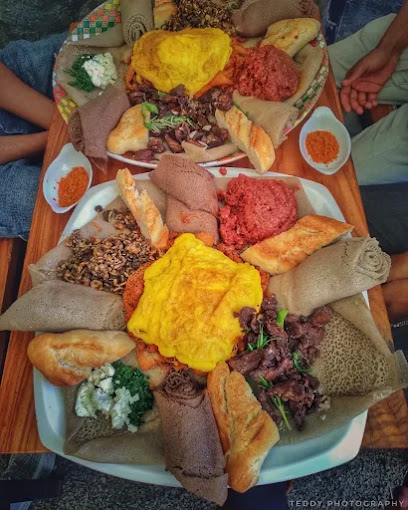
Mintiwab
Experience authentic Ethiopian flavors at Mintiwab in Gondar - where tradition meets taste in every dish.
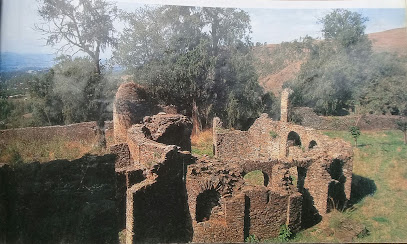
Bahel
Discover authentic Ethiopian flavors at Bahel in Gondar—an unforgettable dining experience steeped in tradition and warmth.

Yalewayeker Hotial
Discover authentic Ethiopian flavors at Yalewayeker Hotial in Gondar—where tradition meets taste in every bite.

Hiwet Restaurant
Experience authentic Ethiopian cuisine at Hiwet Restaurant in Gondar—where every dish tells a story steeped in tradition.

Markets, malls and hidden boutiques
Tesfaye wubet
Explore Tesfaye Wubet in Gondar for unique home goods that celebrate Ethiopian craftsmanship and culture.

MARAKI BALTNA
Explore Maraki Baltna, Gondar's vibrant shopping mall offering unique local crafts, dining, and cultural experiences in the heart of Ethiopia.
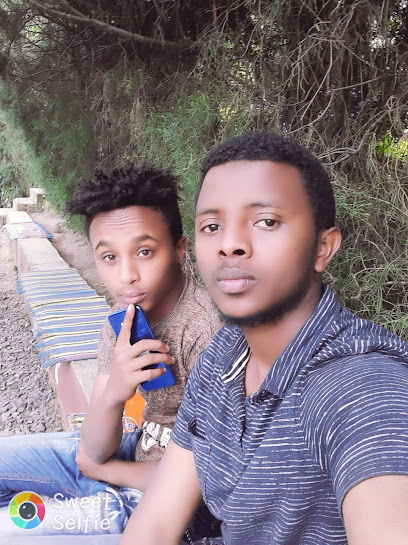
Birhanu Shop
Explore the vibrant craftsmanship of Ethiopia at Birhanu Shop in Gondar, where unique souvenirs and local culture come together.

ANWAR AHMED
Explore the vibrant fashion scene of Gondar at Anwar Ahmed, where unique Ethiopian styles meet modern trends in a delightful shopping experience.
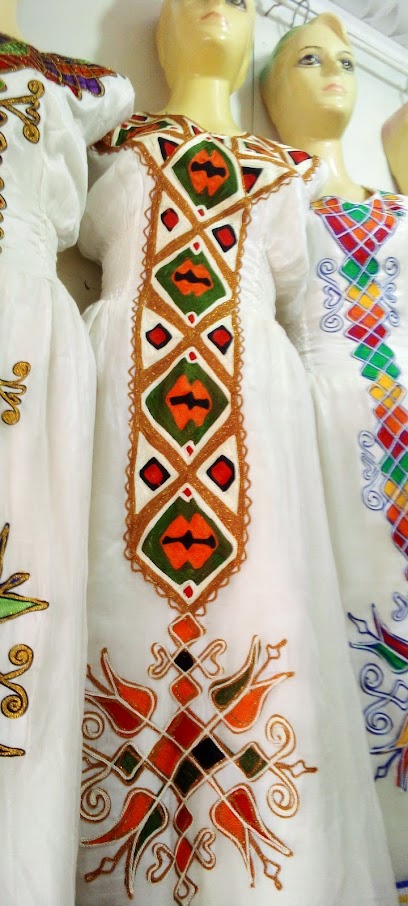
Makiva Gemestones &Minerals
Discover the dazzling world of gemstones and minerals at Makiva Gemestones & Minerals in Gondar, a must-visit for tourists seeking unique treasures.
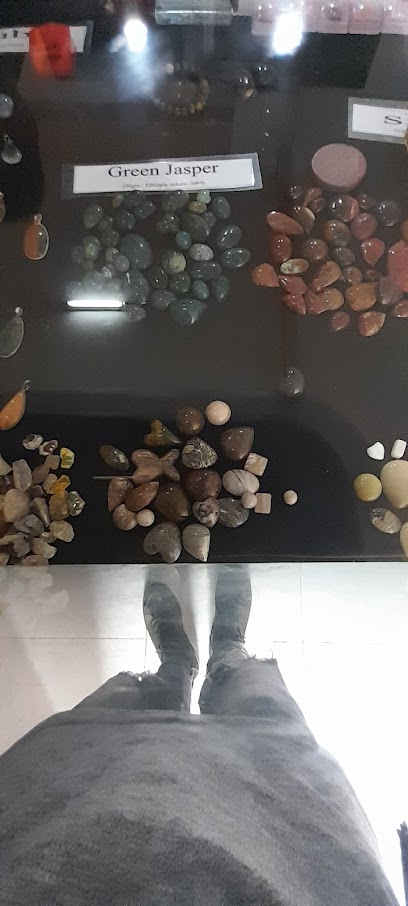
Tsigerda
Discover unique Ethiopian crafts and souvenirs at Tsigerda in Gondar, a vibrant gift shop that reflects the rich culture and artistry of the region.

Brand Suits and Collection
Discover unique fashion at Brand Suits and Collection in Gondar, where quality meets local style in Ethiopia's vibrant clothing scene.
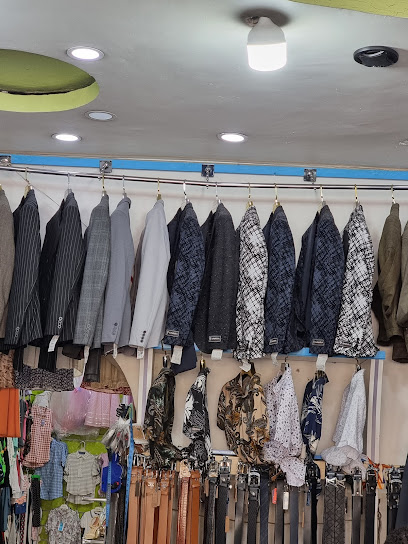
Solomon Gebrie
Explore unique Ethiopian craftsmanship at Solomon Gebrie, the charming home goods store in historic Gondar, perfect for authentic souvenirs.
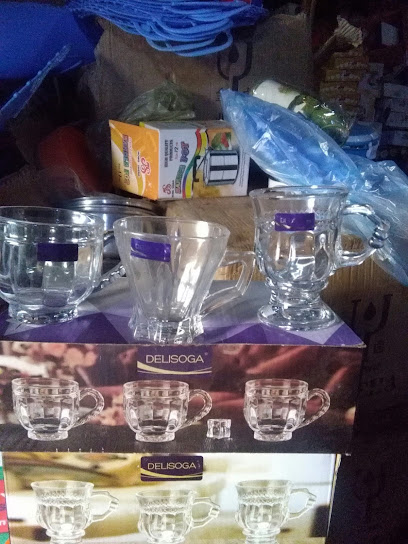
Umer Market
Discover the vibrant Umer Market in Gondar, a home goods haven rich in culture and local craftsmanship.
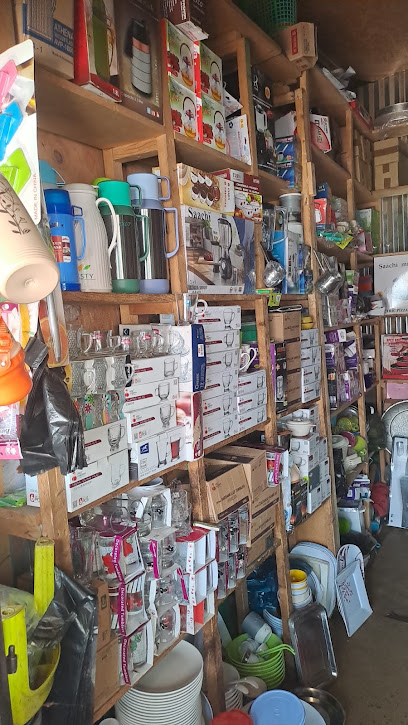
Computer shopping
Discover the best of computer shopping in Gondar, Ethiopia, where technology meets tradition in a vibrant cultural setting.

Essential bars & hidden hideouts
Decent Pub
Experience the vibrant nightlife at Decent Pub in Gondar, where local flavors and friendly faces create an unforgettable atmosphere.
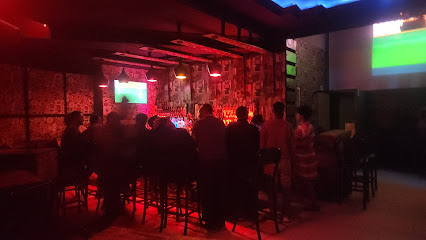
Bar Balageru
Discover the vibrant energy and local flavors of Bar Balageru, a premier bar in Gondar offering a unique taste of Ethiopian culture.
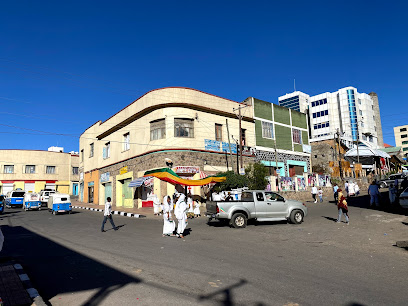
Cyclone Lounge
Experience the vibrant nightlife of Gondar at Cyclone Lounge, a perfect blend of local culture and refreshing drinks in a lively atmosphere.
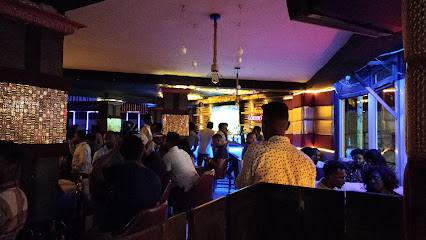
INFINITY BAR & LOUNGE
Discover the vibrant nightlife at Infinity Bar & Lounge in Gondar, Ethiopia, where cool music and fine drinks create an unforgettable experience.
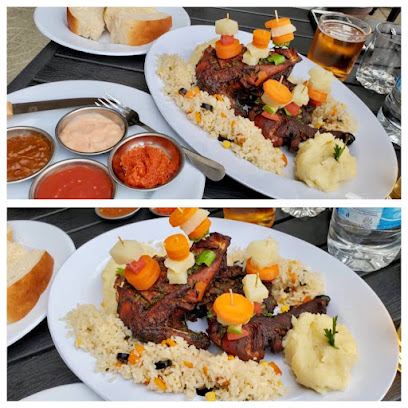
Gojo bar & restorant
Experience the vibrant flavors and lively atmosphere at Gojo Bar & Restaurant in Gondar, where local cuisine meets cultural charm.
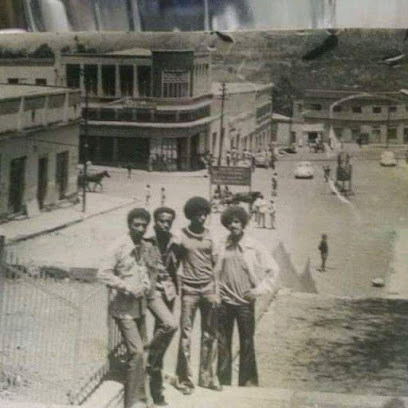
Admasu Grocery
Experience the vibrant culture of Gondar at Admasu Grocery, a local bar offering traditional drinks and a friendly atmosphere.

Genfun Pub
Experience the vibrant nightlife at Genfun Pub in Gondar, where locals and tourists gather to enjoy drinks and lively conversations.

Cinema di Gondar
Experience the vibrant nightlife at Cinema di Gondar, where local culture meets modern entertainment in the heart of CeneGondar.

Atitegeb Elifign
Discover the vibrant spirit of Gondar at Atitegeb Elifign, where locals and tourists unite over delicious drinks and lively atmosphere.

Teddy gerosery
Experience the vibrant atmosphere of Teddy Gerosery, a local bar in Gondar, where traditional Ethiopian hospitality meets lively entertainment.

Local Phrases
-
- Helloሰላም
[sälam] - Goodbyeዋላ
[wala] - Yesአዎ
[awo] - Noአይ
[ay] - Please/You're welcomeእንዴት
[indeet] - Thank youአመሰግናለሁ
[amäseggnalehu] - Excuse me/Sorryስለስለ
[säläsälä] - How are you?እንዴትሽ?
[indeetish?] - Fine. And you?ጠበቆኝ፡ እና ሰማይ?
[tebekon yan sämay?] - Do you speak English?እናንሰማይ፡ እየለን?
[änänsämay yanilän?] - I don't understandአይችልም
[aychilim]
- Helloሰላም
-
- I'd like to see the menu, pleaseመጀመሪያታን፡ ይከታተለኛል፡ እንዴት፡
[mä'ämmiriyatan yakätatälängalë indeet] - I don't eat meatአልቀበልሽም፡ ምግብ፡
[alkebäläshim miğib] - Cheers!ሰላም!
[sälam!] - I would like to pay, pleaseእንከተላበል፡ እንዴት፡
[änäkätalabäl indeet]
- I'd like to see the menu, pleaseመጀመሪያታን፡ ይከታተለኛል፡ እንዴት፡
-
- Help!እምሳላለሁ!
[emsalalehu!] - Go away!እንከታተለህ!
[änkätatäläh!] - Call the Police!ፖሊስን፡ አይደሉ፡
[polisän aydilu] - Call a doctor!ዶክተርን፡ አይደሉ፡
[doktärän aydilu] - I'm lostአትሌዋት፡
[atläwat] - I'm illምንድን፡ ነው፡
[mindin naw]
- Help!እምሳላለሁ!
-
- I'd like to buy...መሸጋገሪያው፡ ይግዛበኛል፡
[mäšägagäriyaw yakäzabänal] - I'm just lookingጠበቆኝ፡ መሸጋገሪያው፡
[tebekon mäšägagäriyaw] - How much is it?ምንድን፡ ነው፡
[mindin naw] - That's too expensiveእንስማዕ፡ ነው፡
[änsäma' naw] - Can you lower the price?መጀመሪያታዊው፡ ተጣፊው፡ እንዴት፡
[mä'ämmiriyatäwi tätäfiwi indeet]
- I'd like to buy...መሸጋገሪያው፡ ይግዛበኛል፡
-
- What time is it?ስንጠብህት፡ ነው፡
[säntebiht naw] - It's one o'clockአንድ፡ ሰዓት፡ ነው፡
[and sä'at naw] - Half past (10)ሰአ-አምሳለማት፡
[sä'amisälamat] - Morningከፍፍለኛ፡
[keffelänga] - Afternoonከምሽሪ፡
[kämishri] - Eveningማርቆስ፡
[märkos] - Yesterdayትላን፡
[talän] - Todayዛሬ፡
[zarä] - Tomorrowነሐሴ፡
[nahes] - 1አንድ፡
[and] - 2ሁለት፡
[hulet] - 3ሶስት፡
[sost] - 4አራት፡
[arat] - 5አምስት፡
[amsost] - 6ስድስት፡
[sidost] - 7ሰባት፡
[sebat] - 8ስምንት፡
[simint] - 9ዘጠኝ፡
[zeten] - 10አስርት፡
[asirt]
- What time is it?ስንጠብህት፡ ነው፡
-
- Where's a/the...?ወደ፡ ...፡ ብት፡ ላንበት፡?
[wädä ... bät labnat?] - What's the address?አዲስ፡ ተለፍ፡ ነው፡?
[adis tälef naw?] - Can you show me (on the map)?ማፕ፡ አልተለፈ፡ እንዴት፡?
[map allätelef indeet?] - When's the next (bus)?ከመምህር፡ ለቀሞ፡ እንዴት፡?
[kämmähär läkämo indeet?] - A ticket (to ....)ቲኬት፡ እንዴት፡
[ticket indeet]
- Where's a/the...?ወደ፡ ...፡ ብት፡ ላንበት፡?
History of Fasil Ghebbi
-
Gondar, often referred to as the 'Camelot of Africa', was founded in the 17th century by Emperor Fasilides. Fasil Ghebbi, which translates to 'Fasil's enclosure', served as the royal palace complex and the political and cultural center of Ethiopia during the height of the Ethiopian Empire. The area was strategically chosen for its proximity to waterways and fertile land, becoming a hub for trade and governance.
-
Fasil Ghebbi is renowned for its unique architectural style, which blends Ethiopian, Portuguese, and Indian influences. The complex features castles, churches, and other structures, most notably the Fasilides Castle, the Qusquam Church, and the library, which showcase the artistry and craftsmanship of the period. This architectural legacy reflects the cultural syncretism that characterized Gondar during the 17th and 18th centuries.
-
Fasil Ghebbi also played a crucial role in the religious landscape of Ethiopia. The area housed various churches, including the Debre Birhan Selassie Church, famous for its stunning frescoes. The Ethiopian Orthodox Church flourished in Gondar, and Fasil Ghebbi became a pilgrimage site, symbolizing the spiritual authority of the emperors and their connection to the divine.
-
Following the reign of the last emperor in the 18th century, Gondar faced a period of political fragmentation known as the Era of the Princes (Zemene Mesafint). During this time, Fasil Ghebbi became a battleground for competing warlords, leading to its decline. Despite the turmoil, the architectural and cultural significance of the area endured, serving as a testament to Gondar's storied past.
-
In 1979, Fasil Ghebbi was designated as a UNESCO World Heritage Site, recognizing its outstanding universal value. The designation aimed to promote the preservation of this historical site, ensuring that future generations could appreciate its architectural grandeur and historical significance. Efforts continue to maintain and restore the structures within Fasil Ghebbi, highlighting its importance as a cultural and historical landmark in Ethiopia.
Fasil Ghebbi Essentials
-
Fasil Ghebbi is located in the heart of Gondar, easily accessible from various neighbourhoods. If you're coming from the Gondar Airport, it’s about a 20-minute taxi ride. Within Gondar, the best way to reach Fasil Ghebbi is by foot, as it's centrally located, but you can also opt for local taxis or bajaj (auto-rickshaws) which are readily available.
-
Fasil Ghebbi is best explored on foot due to its compact nature and pedestrian-friendly pathways. While there are no trains or buses specifically within the neighbourhood, you can rent bicycles from local shops to explore the surrounding areas. Taxis and bajaj are also convenient for longer distances or if you're tired after a day of sightseeing.
-
Fasil Ghebbi is generally safe for tourists, but like any historical site, it’s important to stay vigilant. Avoid wandering alone at night and keep your belongings secure. Be cautious in crowded areas, especially markets. While there are no specific high-crime areas, petty theft can occur, so use common sense and be aware of your surroundings.
-
In case of an emergency, dial 911 for immediate assistance. The local police station is nearby, and there are medical facilities in Gondar. It’s advisable to have travel insurance that covers medical emergencies. For minor health issues, local pharmacies can provide over-the-counter medications.
-
Fashion: Do dress modestly, especially when visiting religious sites. Avoid wearing revealing clothing. Religion: Do respect local customs and traditions; always cover your head when entering churches and monasteries. Public Transport: Do be polite and offer your seat to the elderly. Don't eat or drink on public transport. Greetings: Do greet locals with a handshake, often accompanied by a smile. Eating & Drinking: Do try local dishes and accept food offerings graciously. Don’t refuse hospitality, as it may be seen as impolite.
-
To experience Fasil Ghebbi like a local, visit the nearby markets to sample traditional foods and buy locally made crafts. Engage with the local community; they are often welcoming and eager to share insights about their culture and history. Don't miss the opportunity to join local festivals or events if your visit coincides with them for a deeper cultural immersion.
Nearby Cities to Fasil Ghebbi
-
Things To Do in Bahir Dar
-
Things To Do in Lalibela
-
Things To Do in Axum
-
Things To Do in Mekele
-
Things To Do in Debre Markos
-
Things To Do in Adi Quala
-
Things To Do in Teseney
-
Things To Do in Mendefera
-
Things To Do in Adi Keyh
-
Things To Do in Dekemhare
-
Things To Do in Asmara
-
Things To Do in Keren
-
Things To Do in Addis Ababa
-
Things To Do in Dikhil
-
Things To Do in Dire Dawa










